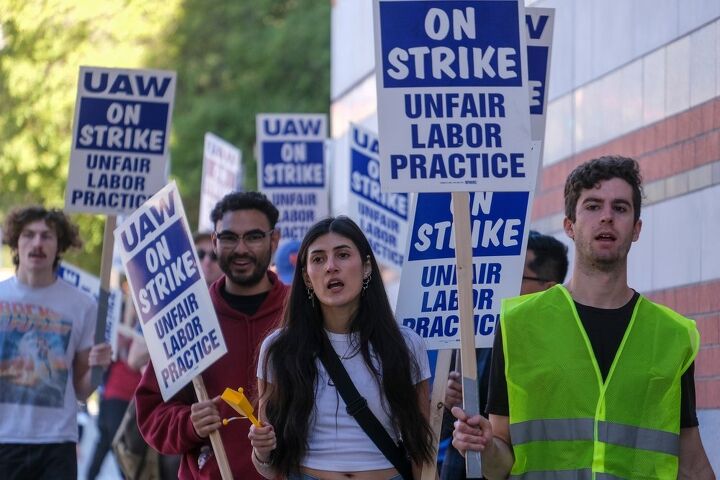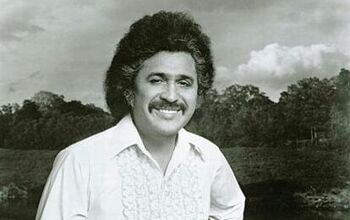UAW Announces Another Strike Expansion

The United Auto Workers (UAW) has decided to broaden its strike on Friday. This week’s targets include Ford’s Chicago Assembly Plant, responsible for the Explorer and Lincoln Aviator, and General Motors’ Lansing Delta Township Assembly, responsible for the Chevrolet Traverse and Buick Enclave.
Stellantis managed to dodge the bullet this time around, with union leadership citing progress made in contract negotiations. It seems the union liked what the automaker had to say regarding the right to strike over plant closures and cost-of-living adjustments. Ford managed to achieve something similar last week. But with the UAW hoping to pit the companies against each other by subjecting them all to strikes, it was inevitable that Blue Oval would be back under union scrutiny.
“We are excited about this momentum at Stellantis and hope it continues,” stated UAW President Shawn Fain.
Fain said about 7,000 employees would be taking part in the latest round of work stoppages, joining roughly 18,300 workers who are currently on strike for the union. Last week, the UAW expanded its strike to 38 parts and distribution locations owned by GM and Stellantis. The plan has been to gradually turn up the heat on the industry, allowing the union to stretch its strike budget a little further while drawing media attention to its demands. By incorporating all three Detroit automakers, something previous eras of union leadership opted against, the UAW is also hoping to play them off each other as contract negotiations continue.
While Friday’s talks were said to be frantic, with the union claiming a lot of last-minute chatter coming from the industry, the plan was to have the 7,000 employees working in Chicago and Lansing walk off at noon if no deal had been reached.
Though automakers have issued public complaints that the union has been slow to respond to updated proposals. They’re also not particularly keen on the UAW’s updated tactics. Last week, CNBC reported that the industry was “questioning” the union’s strike motives after messages were leaked from UAW communications director Jonah Furman claiming that the union was causing “recurring reputations damage and operational chaos.”
Automakers, supported by corporate media, attempted to frame the above as scandalous — even though these have been the tactics of unionized labor for over a century.
“It’s now clear that the UAW leadership has always intended to cause months-long disruption, regardless of the harm it causes to its members and their communities,” General Motors said in an emailed statement to CNBC. “The leaked information calls into question who is actually in charge of UAW strategy and shows a callous disregard for the seriousness of what is at stake.”
Stellantis called the above “incredibly disturbing” and claimed it indicated that the “UAW’s approach to these talks is not in the best interest of the workforce.”
“We are disappointed that it appears our employees are being used as pawns in an agenda that is not intended to meet their needs,” Stellantis stated.
I suppose some of the allegations that the union is perpetually available to continue in good-faith negotiations could stick if the UAW has indeed been slow to respond with counter-proposals. But this is how the game has always been played by both sides. The whole thing is an optics war with each group hoping to win the hearts and minds of the American people before the other side blinks.
But that could take a while, as the UAW has made some big demands.
We’ve covered them before. However, the most important items likely include a 40-percent pay increase over the next four years (the same pay bump industry CEOs have enjoyed. This demand was later walked back to 36 percent), the restoration of traditional pensions, cost-of-living adjustments, and the elimination of compensation tiers that keep newer hires from being treated as fully fledged employees.
Much of the above stems from how much was given up during previous rounds of bargaining. Today’s union leaders are hoping to move away from the corruption of their predecessors and win back some of the concessions workers made over the last several decades. The worst of this took place in the run-up to the 2008 automotive bailout when the industry was financially crippled and laying off employees in large numbers.
While layoffs have also been relatively common over the last few years, industry finances are comparatively healthy. Even as production volumes plunged and news broke that the average American household could no longer afford to purchase brand-new vehicles, domestic automakers and dealerships enjoyed extremely high levels of profitability. The phenomenon has been something the UAW has brought up repeatedly as it hopes to garner public support.
[Image: UAW]
Become a TTAC insider. Get the latest news, features, TTAC takes, and everything else that gets to the truth about cars first by subscribing to our newsletter.

A staunch consumer advocate tracking industry trends and regulation. Before joining TTAC, Matt spent a decade working for marketing and research firms based in NYC. Clients included several of the world’s largest automakers, global tire brands, and aftermarket part suppliers. Dissatisfied with the corporate world and resentful of having to wear suits everyday, he pivoted to writing about cars. Since then, that man has become an ardent supporter of the right-to-repair movement, been interviewed on the auto industry by national radio broadcasts, driven more rental cars than anyone ever should, participated in amateur rallying events, and received the requisite minimum training as sanctioned by the SCCA. Handy with a wrench, Matt grew up surrounded by Detroit auto workers and managed to get a pizza delivery job before he was legally eligible. He later found himself driving box trucks through Manhattan, guaranteeing future sympathy for actual truckers. He continues to conduct research pertaining to the automotive sector as an independent contractor and has since moved back to his native Michigan, closer to where the cars are born. A contrarian, Matt claims to prefer understeer — stating that front and all-wheel drive vehicles cater best to his driving style.
More by Matt Posky
Latest Car Reviews
Read moreLatest Product Reviews
Read moreRecent Comments
- Peter Buying an EV from Toyota is like buying a Bible from Donald Trump. Don’t be surprised if some very important parts are left out.
- Sheila I have a 2016 Kia Sorento that just threw a rod out of the engine case. Filed a claim for new engine and was denied…..due to a loop hole that was included in the Class Action Engine Settlement so Hyundai and Kia would be able to deny a large percentage of cars with prematurely failed engines. It’s called the KSDS Improvement Campaign. Ever hear of such a thing? It’s not even a Recall, although they know these engines are very dangerous. As unknowing consumers load themselves and kids in them everyday. Are their any new Class Action Lawsuits that anyone knows of?
- Alan Well, it will take 30 years to fix Nissan up after the Renault Alliance reduced Nissan to a paltry mess.I think Nissan will eventually improve.
- Alan This will be overpriced for what it offers.I think the "Western" auto manufacturers rip off the consumer with the Thai and Chinese made vehicles.A Chinese made Model 3 in Australia is over $70k AUD(for 1995 $45k USD) which is far more expensive than a similar Chinesium EV of equal or better quality and loaded with goodies.Chinese pickups are $20k to $30k cheaper than Thai built pickups from Ford and the Japanese brands. Who's ripping who off?
- Alan Years ago Jack Baruth held a "competition" for a piece from the B&B on the oddest pickup story (or something like that). I think 5 people were awarded the prizes.I never received mine, something about being in Australia. If TTAC is global how do you offer prizes to those overseas or are we omitted on the sly from competing?In the end I lost significant respect for Baruth.


































Comments
Join the conversation
I did not notice, did they mention climate change? How they are going to fight climate change, racism and gender discrimination. I mean collective Big 3.
GM, Ford and Stellantis have significant oversupply of product sitting on dealer lots and banked up in holding yards across the country. Big 3 management is taking advantage of UAW's action to bring their inventories inline to what they deem reasonable. When you have models pushing 6 months of supply having your productions lines shut down by a strike is not something that's going to worry you. UAW does not have any advantages here, but they are directly impacting the financial well being of their membership. Who will be the first to blink? Those UAW members waving the signs around and receiving "strike pay" that is, what, 20% of their wages? UAW is screwing up this time around.